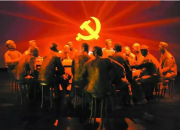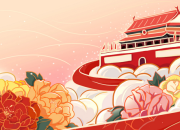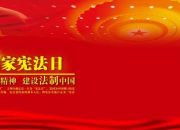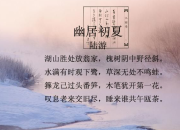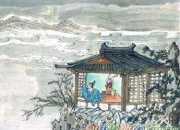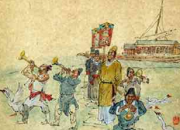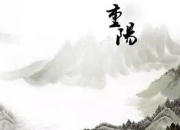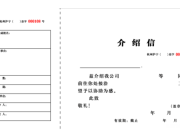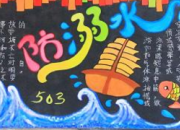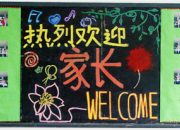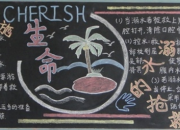英语寓言故事
时间:2021-08-31寓言故事是含有讽喻或明显教训意义的故事。对小朋友来说很有教育的意义。

英语寓言故事篇一
树和斧子
A Woodman came into a forest to ask the Trees to give him a handle for Ax. It seemed so modest a request that the principal tree at once agreed to it, and it was settled among them that the plain, homely1 Ash should furnish what was wanted. No sooner had the Woodman fitted the staff to his purpose, than he began laying about him on all side. Felling the whole matter too late, whispered to the Cedar2: "The first concession3 has lost all. If we has not a sacrificed our humble4 neighbor, we might have yet stood for ages ourselves."
有一个樵夫来到森林里,要求树给他一跟斧柄,看来他的请求非常谦虚,立刻得到了树的首领的同意。他们决定由平凡而朴素的白杨树来提供所需要的东西。樵夫刚安好斧柄,就开始到处乱砍,森林里最高的树都砍倒了,树林现在察觉大势已去,就小声对衫树说:“第一次的让步已失去了一切。如果我们不牺牲我们的小小的邻居,我们自己还可以活无数年呢。”
英语寓言故事篇二
The old man who did no wrong
In the countryside, there is a cottage with a thatched roof. There is a shock's nest on the eaves. The wall slopes and there are flowers in the window. They have a pot-bellied stove. In this cottage live an old couple -- a peasant and his wife. Even though they are poor, they are not attached to their few possessions. They have a horse.
One day, the old woman says: "Husband, today is the market day. You ride the horse, sell it or exchange it for something else…you will never do anything wrong." The sun is blazing2 hot. There are no clouds in the sky. The road is dusty. What's more, there is no where to shelter. Just then, a man approaches with a cow. The cow is healthy and better than others. "It is sure to make the best milk!" the peasant thinks. "It would be a good buy for me to exchange the cow for the horse…" "Hello, friend." he says. "I think that the hose3 is worth more than the cow, but I don't mind. The cow is more useful to me. Will you trade with me?" "Certainly, I will." The man who is leading the cow says. So they trade. The peasant could have gone home because he had done what he wanted to do. But since he was on his way to the market, he resolves to go and have a look. Therefore, he continues up the road with the cow. In no time, he catches up with a man who is leading a sheep which is nice and fat with good wool. "I want this very much, the peasant thinks in his heart, it can eat the grass beside the ditch. In winter, it can stay with me in the house. Maybe a sheep is better than a cowl. Then the peasant trades the sheep for the cow. After this, he leads the sheep onward4. On the road, he see a man with a big goose under his arm near a fence. " The peasant says: "You have such a big goose! It's feathers are thick and it is fat. If I tie it and put it in the little pond, it is good. My wife can feed it, fruit peels and cabbages. She has often said ‘I want to have a goose. Now she may realize her dream.'" The man agrees. So they trade. The peasant now owns a goose. He walks into the town. There so many people on the road. The people and the animals are like rabbits in a warren. The peasant comes to a ditch next to the fence of the taxman's potato field. A hen is tied in the field. Seeing this, the peasant thinks: "This hen is the best one which I have seen. It is better than the priest's hen. On my! I want this one. A hen can find grain and fend5 for itself. It will be a good buy if I trade the hen with the goose." "May we trade?" he says. "Trade?" The man says. "Oh, that's not bad." So they trade. The taxman gets the goose and the peasant owns the hen. He has done a lot of business on the way to the market. It is hot and he feels tired. He wants to eat and drink something. He walks toward a tavern6. As he is going in, a seller is coming out. They meet at the gate. "What do you have in the sack?" The peasant asks. "Mashed7 apples" the seller says. "a bag of apples to feed pigs" The peasant say: "There are so many. I wish my wife could see this. Last year, our apple tree just produced three apples. We stored them in the cupboard until it split8 out. It is a fortune. My wife said. Now, she may see quite a fortune. Yes, I wish she could see this." "How much?" the seller asks. "How much? I want trade it with the hen. " So he gets a bag of mashed apples. When he goes into the tavern to the bar, he put the apples near the stove. He does not realize that the fire is burning. There are so many people in the room, including the horseman, the dealer9 and two Englishmen who are very rich. There is a sound: the fire is toasting the apples. "What are those?" Soon they know that the peasant traded the cow with a horse and continued to trade until he got a bag of mashed apples. "Ah, when you go home, I am sure that your wife will hit you", the two Englishmen say, "She will quarrel with you." "She will give me a kiss and she will not hit me." the peasant says, "my wife will say my husband is always correct." They say: "we can bet one hundred and eleven pounds!" The peasant says: "I can juts10 bet a bag of mashed apples. What's more, I may add my wife and myself to the bet. I think that makes it fair." "Good, very good!" they say. So the bet is made. The master drives out his cart. The two Englishmen and the peasant with mashed apples get on it. After a while, they reached the peasants' house.
"Good evening, wife!"
"Good evening, husband!"
"I have traded."
"You know what you have done." the old woman says so she hugs him. So they forget all the guests and the apples.
"I traded a cow for the horse."
"Thank goodness, we have milk." the old woman says. "We have milk and cheese. That was a good deal."
"Yes, but I traded a sheep for the cow."
"Ah, that is better!" the old woman says, "That was considerate of you. We have enough grass to raise the sheep. Now I have white cheese and woolen11 socks. Yes, we have woolen night clothes. A cow will not produce so many things. Its hair will fall out. It is considerate of to do that."
"But I traded a goose for it!"
"My dear, we will have goose on St. Martin's festival. You always make me happy. It is a good idea. We may raise the goose which will be fat before the St. Martin's festival. "
"But I traded a hen for it." Her husband says.
"A hen?"
"That was a great deal!" the old woman says. "The hen will lay eggs which will hatch1 into chicks. We just need a brood12 of chicks."
"But I traded a bag of mashed apples for it."
"Now I can not help kissing you." the old woman says, "Thank you, my good husband! Now I will tell you something. As you know, after you left, I planned to cook for you. I remember that pancakes are your favorite food. But I have no caraway seed. So I borrow some from the school teacher. I knew that they had some. But the teacher's wife is so mean. I asked her to lend some to me. ‘Borrow?' she says to me. ‘We planted nothing in the vegetable garden besides a mashed apple. We can't lend you because I don't have any apples.' Now I can lend her ten mashed apples or a bag of mashed apples. Husband, this is so funny!" She kissed him after saying this.
"This is wonderful!" the two Englishmen say together, "Always he is always meeting misfortune13, he is happy. That is good fortune." Then they pay the peasant 111 pounds because he does not get hit but gets a kiss.
Yes, if an old woman thinks her husband is the cleverest man in the world and says what he does is right, she will gain!
